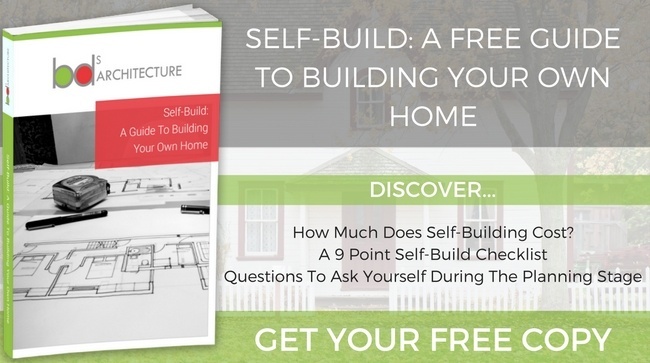
A cardinal rule of architects and architectural designers is never to advertise specific prices online, not that we have anything to hide, but because no two extensions are the same. So many variables come into play – such as materials, location, access, soil type and timeframe – that two superficially similar extensions could end up varying quite widely in cost.
This being said, we’re going to come quite close to breaking our rule in this article by explaining what you should typically expect to pay for a two-storey extension per metre, and how these costs are calculated. For a specific price though, we recommend you get in touch and discuss your requirements with us. It will enable us to put together a bespoke quote based on your brief.
Average Extension Costs Per Metre
Let’s start by taking a look at some average costs and seeing how they compare across different types of extension. We have to emphasise again that these are extremely broad estimates. Looking at averages around the country does not always give an accurate picture because of the higher costs for extending in London and the South-East. It may well be cheaper if you’re looking to extend in Nottingham or Derby.
The lower price indicates an extension following a basic build, with standard layout and materials. As more bespoke specifications are added, the price increases accordingly.
- Two storey extension: £1,000-£2,200 per square metre.
- One storey extension: £1,250-£2,500 per square metre.
- Cellar extension/conversion: £2,000-£4,000 per square metre.
- Loft conversion: £1,000-£1,500 per square metre.
- Interior Refurbishment (e.g. integrating two houses, relocating kitchen etc.): £500-£2,000 per square metre
Why Two Storeys Are Cheaper Than One
One thing that surprises many people is that, metre for metre, two storey extensions are considerably cheaper than single storey extensions. There are three reasons for this.
- Firstly, a single and double storey extension both require the same amount of below ground work, so the upper storey area doesn’t have any foundation attached.
- Secondly, when building materials are purchased in bulk, contractors can benefit from economy of scale – yielding a saving on materials for the customer.
- Thirdly, single-storey extensions frequently include the price of a new kitchen, which increases the cost per metre.
How Costs Are Calculated
For each metre of space there are various cost attached, including materials, professional services, labour and taxes. The breakdown below shows how your total costs are calculated, given as a percentage of the total:
55%: Building materials and labour: As expected, the contract value amounts to over half of your total cost. When budgeting for a house extension, it’s important to bear in mind that there are additional costs as well as the build itself.
20%: VAT: You will need to budget for an additional 20% for VAT. If you are developing a property as a business venture on behalf of a VAT registered property developer, then you should be able to claim this back. Unfortunately, this is not possible for private individuals. However, if your house has been empty for two years before you start the extension, you can claim a lower VAT rate of 5%. Please chat with us for clarification if you are unsure.
5%: Contingency Fund: Set aside a small portion of your total budget for contingency plans, e.g. unforeseen delays, utility costs or accommodation expenses if you have to move out.
15%: Professional Services: There are usually several professionals involved with planning and building a house extension, such as an architectural designer, structural engineer, quantity surveyor and project manager. This is a worthwhile investment as it helps avoid problems and delays with the build. Costs can be reduced by working with a combined architectural design and construction company – such as BDS.
2%: Planning Permission: There are costs associated with planning applications and satisfying building control regulations. In our experience it is worth the money to pay for professional help, rather than slogging through it yourself, especially if you live in a conservation area or are developing a listed property.
3%: Party Wall: If there is a party wall to consider with an adjoining property, you should increase your budget by an extra 3% to accommodate additional building work or legal agreements.
Make Your Dream House Extension A Reality
Two storey extensions often cost less than people realise, and most unforeseen expenses can be avoided with professional help and realistic budgeting. So, if you are ready to start planning the best investment decision you are likely to make, give us a call. A two storey extension will transform your lifestyle and massively increase the value of your property. To find out more about extensions in general, please download our Ultimate Guide to Extending Your Living Space, which covers topics such as budgeting, design, planning applications and project management. Click here to claim your copy.







